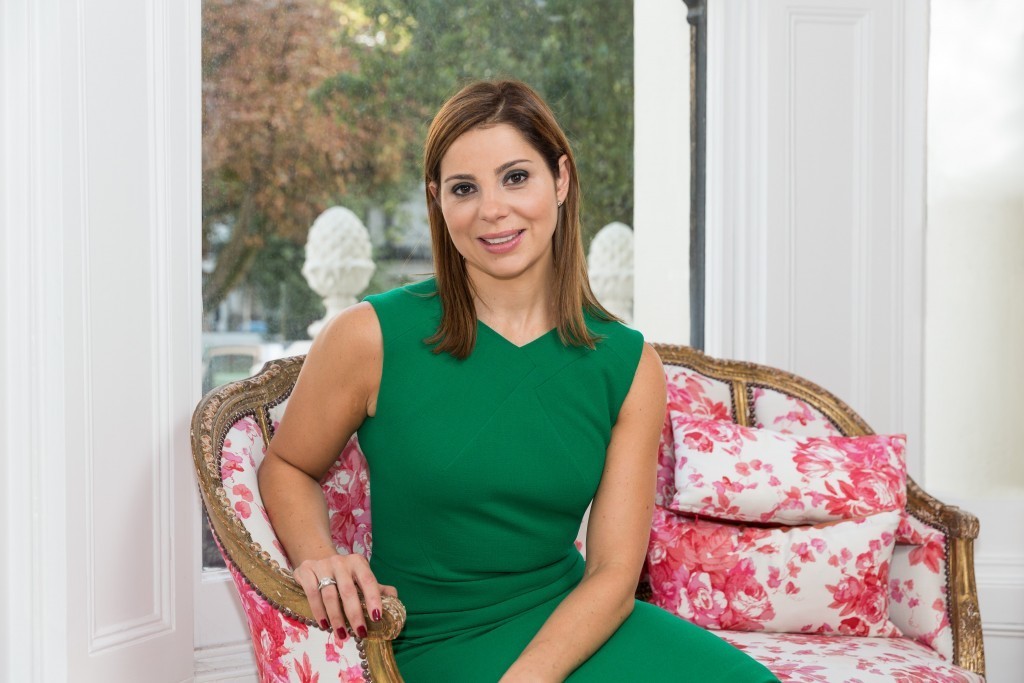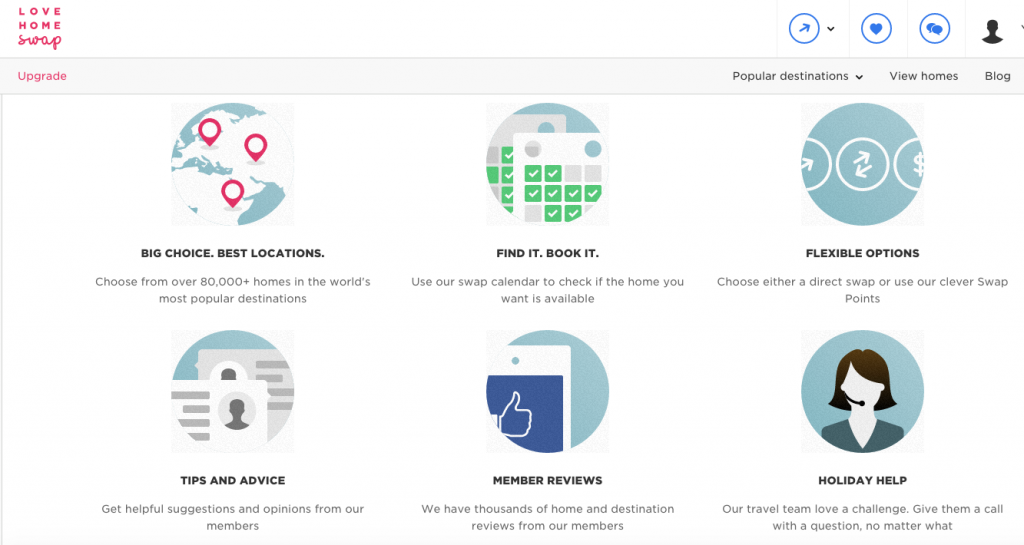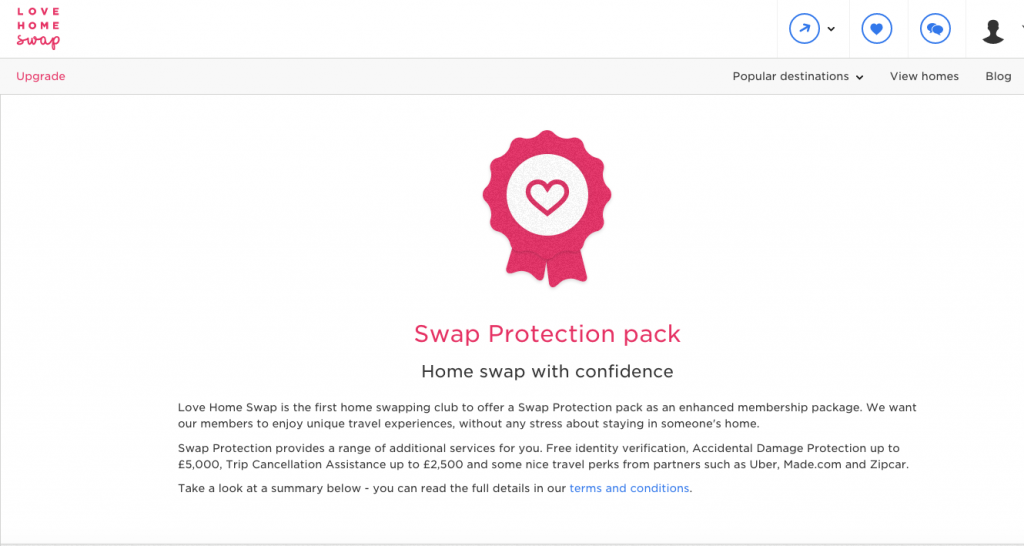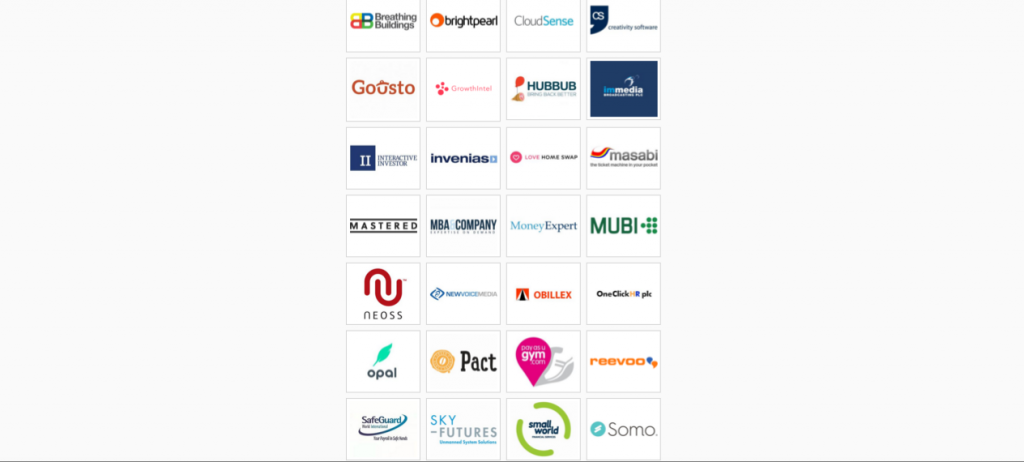Luxe.Co Exclusive Interview with Debbie Wosskow, Founder of Love Home Swap | Unlocking Sharing Economy
November 28,2018
Other than hotels and Airbnb, do we have other options while travelling? British female entrepreneur Debbie Wosskow says тYesт.
Unlocking the sharing economy, Ms, Wosskow founded "Love Home Swap", a membership exchange platform where users can lend their own idle homes to earn points and exchange for stays at othersт residences.
Since its inception in 2011, more than 100,000 homes from 190 countries have registered on Love Home Swap. This number is still growing. In 2014, a non-profit organization founded by LinkedIn's co-founder Reed Hoffman, Silicon Valley Comes to the UK (SVC2UK), published a list of 58 UK companies with the potential to have turnover over GBP100M in five years. Love Home Swap was one of the "unicorns".
PwC 2015 Report shows that the global scale of the sharing economy is currently worth USD15B and will reach USD335B in 2025. In the UK, Ms. Wosskow is the promoter of this emerging business model. She founded not only Love Home Swap, but also Sharing Economy UK (SEUK), the UK's sharing economy industry association. In the interview, Ms. Wosskow talked with Luxe.Co about her experience of starting Love Home Swap and interpreted startup opportunities in current sharing economy industry.

Above: Debbie Wosskow
A Startup Inspired by a Movie
Ms. Wosskow graduated with a degree in philosophy from Oxford University. Deeply affected by the family entrepreneurial tradition, she founded her first marketing company at the age of 25 and sold it successfully in 2007. After becoming a mother, Ms. Wosskow realized that traditional hotels were inconvenient and expensive while travelling with her young children. In one of her flights in 2011, she watched the movie "The Holiday" by Kate Winslet and Cameron Diaz. The film tells the story of a British woman and an American woman who exchanged their homes after a broken relationship. After watching the movie, she was surprised that there was no website in the real world where people could exchange idle houses. This is how the website "Love Home Swap" was created.

Above: Movie "The Holiday"
Registered members on Love Home Swap pay a monthly fee of 12 to 40 pounds to exchange their own homes with other members. The website also provides a flexible point system. House owners can rent theirТ idle houses to other members and collect points. The accumulated points can be exchanged for free accommodation at other membersт houses.

Above: Screenshot of Love Home Swap website
Similar to the story of many tech companies, people didn't buy in the idea at first. Ms. Wosskow tried to convince 250 friends, family and acquaintances to exchange their homes. Now the user base grows like a snowball, and is getting bigger and bigger.
People always compare Love Home Swap with Airbnb as they have similar business models. Ms. Wosskow believes that the biggest difference is the target user group т those who can participate in the house exchange must be people or families who have purchased at least one house. тThe primary target of the website is the owners of houses, not house tenants. We help owners travel anywhere they want to go. Moreover, our user base is relatively more senior people. We are more like the 'adult versionт of Airbnb,т Ms. Wosskow said.
Unlike Airbnb's great appeal to young people, about 50% of users on Love Home Swap are families with children. Retired people on the site are also everywhere, perhaps because they have more free time to travel and exchange houses with other members. There are also many well-known entrepreneurs on the website. In addition to Ms. Wosskow 's frequent use of the website's services to exchange houses with other users, Simon Woodroffe, the founder of the famous sushi chain Yo! Sushi, also uses his dock on the Thames to exchange vacation stays in Bali or Cape of Good Hope.

Above: Love Home Swap member residence in Hawaii
Security Measures Based on Mutual Trust
Although the website is built on mutual trust, necessary security measures are essential for any company. Love Home Swap has set up "3-layered insurance" to secure user safety.
Like Airbnb, Love Home Swap requires member identification. It also employs a rating and comment system. According to Ms. Wosskow, тThe security of housing exchange is based on the mutual supervision. The evaluation system of the website is the basis of supervision. The members themselves are the core of the company's risk management.т Love Home Swap also gives members the supervision of housing ownership. тIf members feel it is necessary, they can choose to confirm with the other party before the exchange and find out if the other party really owns the house,т said Ms. Wosskow.
At the same time, Love Home Swap also offers "Exchange Loss Protection" services. Users can purchase this protection service before others booking their houses. If the house is damaged, the owner can receive up to 5,000 pounds. If the trip is cancelled, the owner can receive up to 2,500 pounds. Ms. Wosskow revealed that although many members chose to purchase this service just in case, very few members had actually applied for compensation.

Above: Love Home Swap exchange loss protection service
Other accommodation websites have problems with tenants using rooms for sex transactions. In an interview with the British newspaper "Evening Standard", Ms. Wosskow mentioned that similar things had never happened in Love Home Swap. She believes that the housing exchange system provides a certain security guarantee: "You will cherish each other's house just as you want others to cherish your home," said Ms. Wosskow.

Above: Love Home Swap member residence in Marrakech, Morocco
The Future of Sharing Economy
Sharing economy is growing rapidly in the tourism industry. The forerunner Airbnb was valued at USD25B at the end of last year. Love Home Swap has also successfully obtained multiple rounds of financing.
However, Love Home Swap was not favored by capital from the beginning. When Ms. Wosskow first pursued the venture fund, she was advised to quit. For investors, risk assessment is the most important factor, and there is no exception for sharing economy startups. VCs usually ask for user precipitation and data accumulation to prove the growing potential with historical records. In other words, it is not likely to get investments by just providing a fantastic idea.
MMC Ventures, the investor of Love Home Swap, is one of the UK's most active venture capital institutions. Their investment portfolio includes the art film website Mubi and the coffee subscription company Pact. According to MMC Ventures, the business model of home exchange offers a unique value proposition. One year after MMC Ventures first meeting the Love Home Swap team, the site's business grew nearly 10 times. This growth rate was an important reason why MMC Ventures invested in the two rounds of funding for the company.

Above: Previous investments of MMC Ventures
тIn the past few years, sharing economy startups in accommodation and taxis have the fastest development. I think this momentum will continue.т Ms. Wosskow concluded, тRide-sharing is the next opportunity. Companies such as BlaBlaCar have achieved significant expansion globally in recent years and have also made outstanding achievement in financing. I believe that these companies will continue to grow."
Talking about the key to success, Ms. Wosskow believes that in addition to a clear understanding of market opportunities and customer needs, being market-driven and providing real demand are also crucial. "Finding the balance between market demand and the value added by the company, is the key to our success," said Ms. Wosskow.

Above: Love Home Swap member residence in Iceland

Above: Love Home Swap member residence in Malibu, USA

Above: Love Home Swap member residence in Indonesia
|Chinese Reporter: Yunhan Fang
|English Editor: Aviva Li
Marketing and Business Cooperation, please email toТ contact@hualizhi.com












Comments